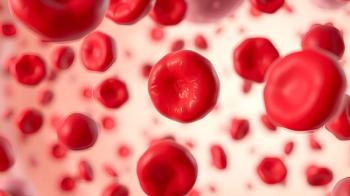
- May/June 2014
- Volume 5
- Issue 3
Idelalisib Shows Promise in Blocking Blood Cancer Growth
During a recent Phase I trial, idelalisib was found to suppress a vital regulator of cancer growth in CLL patients.
In a study published online in Blood on March 10, 2014, the effect of idelalisib (GS 1101, CAL 101) was evaluated in 54 patients with heavily pretreated relapsed/refractory CLL. Patients in the trial were treated at 6 dose levels of oral idelalisib, taking 50 to 350 mg once or twice daily and remaining on continuous therapy.
The study found that idelalisib targets and blocks expression of the delta isoform of the PI3 kinase enzyme, which makes the drug a promising potential treatment for cancers that form in the B-cell pathway, such as CLL.
Patients in the trial experienced prolonged reduction of disease activity, with 72% achieving either a complete or partial response to the treatment. The median progression-free survival for CLL patients was 15.8 months.
The most common adverse events were pneumonia (20%), neutropenic fever (11%), and diarrhea (6%).
“Idelalisib is a part of a revolutionary new class of treatments that can hone in on a specific target without causing the wide range of side effects seen with chemotherapy,” said study author Jennifer R. Brown, MD, PhD, director of the Chronic Lymphocytic Leukemia Center at Dana-Farber Cancer Institute in Boston in a press release.
Articles in this issue
over 11 years ago
One-Fourth of Men Drop Out of Prostate Cancer Active Surveillanceover 11 years ago
Gazyva by Genentechover 11 years ago
GI Cancers: Neuroendocrine Cancer Updateover 11 years ago
Specialty Pharmacy-Specific URAC Standardsover 11 years ago
Trends in Cancer CareNewsletter
Stay informed on drug updates, treatment guidelines, and pharmacy practice trends—subscribe to Pharmacy Times for weekly clinical insights.


























